Fox News Flash top headlines for June 25
Fox News Flash top headlines are here. Check out what's clicking on Foxnews.com.
A timeline of key events that began with George Floyd's arrest on May 25, 2020, by four police officers in Minneapolis:
May 25, 2020 — Minneapolis police officers respond to a call shortly after 8 p.m. about a possible counterfeit $20 bill being used at a corner grocery and encounter a Black man, later identified as George Floyd, who struggles and ends up handcuffed and face down on the ground. Officer Derek Chauvin uses his knee to pin Floyd's neck for about nine minutes while bystanders shout at him to stop. Bystander video shows Floyd crying "I can't breathe" multiple times before going limp. He's pronounced dead at a hospital.
May 26 — Police issue a statement saying Floyd died after a "medical incident," and that he physically resisted and appeared to be in medical distress. Minutes later, bystander video is posted online. Police release another statement saying the FBI will help investigate. Chauvin and three other officers — Thomas Lane, J. Kueng and Tou Thao — are fired. Protests begin.
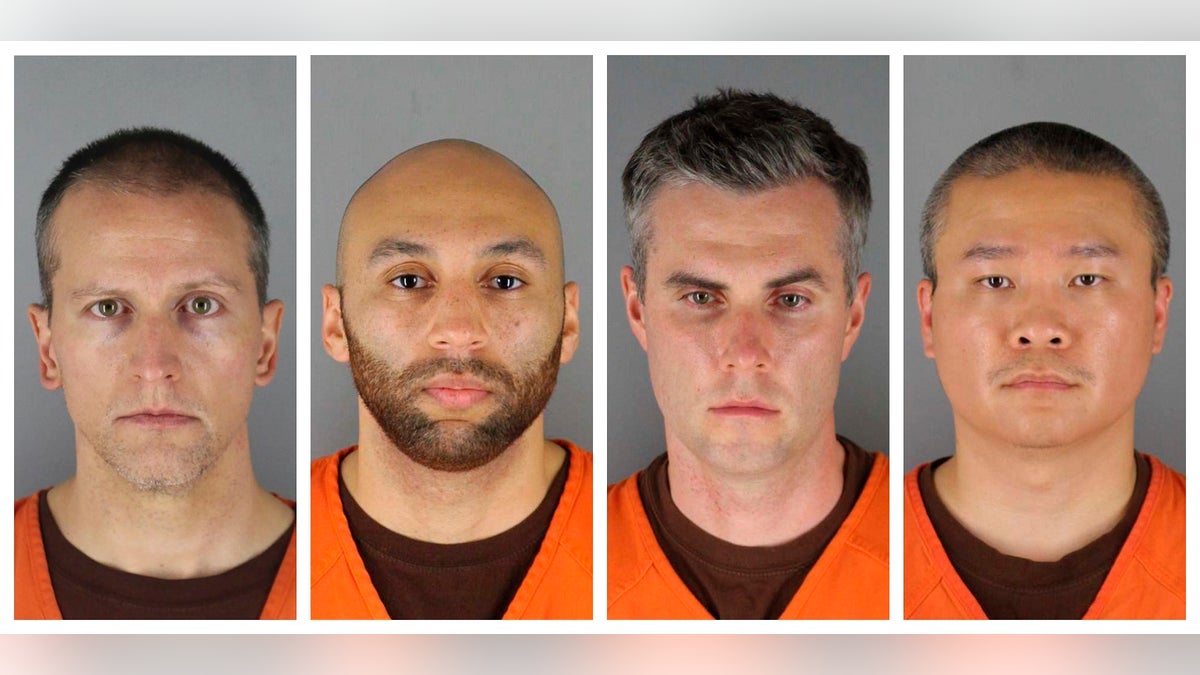
Former Minneapolis police officers Derek Chauvin, J. Alexander Kueng, Thomas Lane and Tou Thao. On Thursday, a Hennepin County judge ruled a police body-camera video of a 2019 arrest of George Floyd can be publicly viewed. (Hennepin County Sheriff's Office via AP)
May 27 — Mayor Jacob Frey calls for criminal charges against Chauvin. Protests lead to unrest in Minneapolis, with some people looting and starting fires. Protests spread to other cities.
May 28 — Gov. Tim Walz activates the Minnesota National Guard. Police abandon the 3rd Precinct station as protesters overtake it and set it on fire.
May 29 — Chauvin is arrested and charged with third-degree murder and manslaughter. President Donald Trump tweets about "thugs" in Minneapolis protests and warns: "When the looting starts, the shooting starts." Protests turn violent again in Minneapolis and elsewhere.
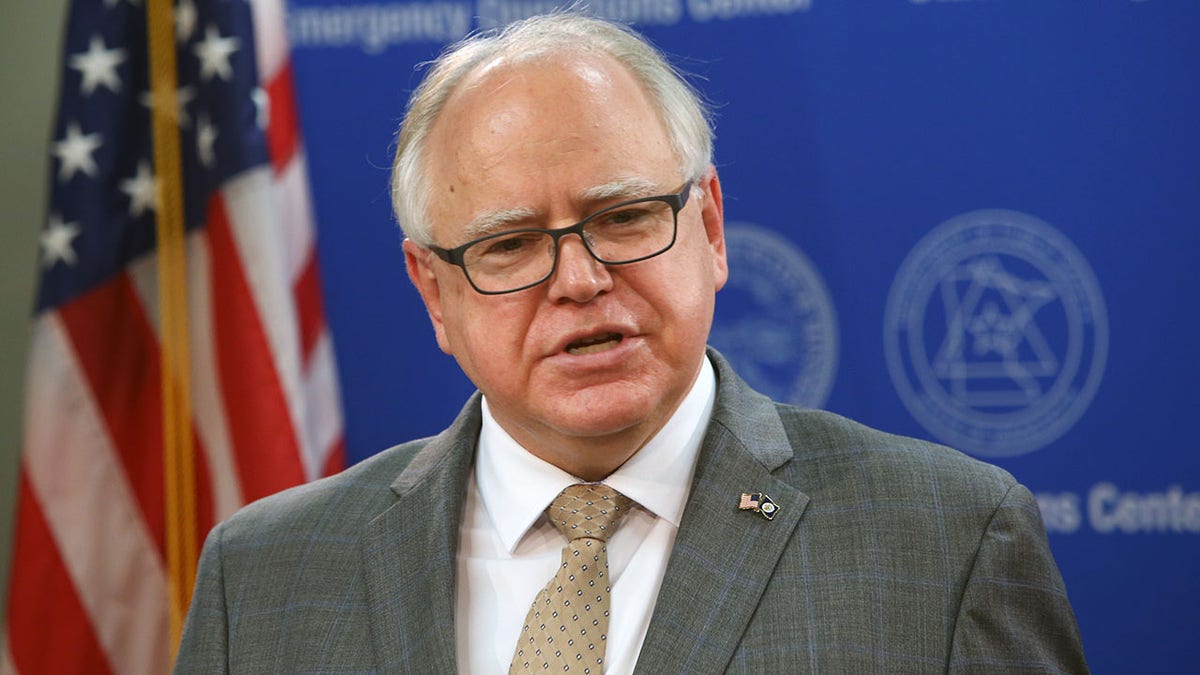
Minnesota Governor Tim Walz speaks to the press on June 3, 2020 in St. Paul, Minnesota. Earlier today the state's Attorney General Keith Ellison announced that charges of aiding and abetting second-degree murder and aiding and abetting second-degree manslaughter had been filed against former Minneapolis police officers Thomas Lane, J. Alexander Kueng, and Tou Thao in the death of George Floyd. Ellison also announced that charges against former officer Derek Chauvin were upgraded to second-degree murder. (Photo by Scott Olson/Getty Images)
May 30 — Trump tries to walk back his tweet. Protests continue nationwide and some turn violent.
May 31 — Walz says Attorney General Keith Ellison will lead prosecutions in Floyd's death. The nationwide protests continue.
June 1 — The county medical examiner finds that Floyd's heart stopped as police restrained him and compressed his neck, noting Floyd had underlying health issues and listing fentanyl and methamphetamine use as "other significant conditions."

In this image from video, Dr. Jonathan Rich, a cardiologist, testifies as Hennepin County Judge Peter Cahill presides over court Monday, April 12, 2021, in the trial of former Minneapolis police Officer Derek Chauvin at the Hennepin County Courthouse in Minneapolis. Chauvin is charged in the May 25, 2020 death of George Floyd. (Court TV via AP, Pool)
June 2 — Minnesota's Department of Human Rights launches a civil rights investigation into the Minneapolis Police Department.
June 3 — Ellison files a tougher second-degree murder charge against Chauvin and charges the other three officers who were involved in Floyd's arrest.
June 4 — A funeral service for Floyd is held in Minneapolis.
HUNDREDS, INCLUDING AL SHARPTON, ERIC GARNER'S MOM, MOURN AT GEORGE FLOYD MEMORIAL IN MINNEAPOLIS
June 5 — Minneapolis bans chokeholds by police, the first of many changes to be announced in coming months, including an overhaul of the police department's use-of-force policy.
June 6 — Massive, peaceful protests happen nationwide to demand police reform. Services are held for Floyd in Raeford, North Carolina, near his birthplace.
June 7 — A majority of Minneapolis City Council members say they support dismantling the police department. The idea later stalls but sparks a national debate over police reform.
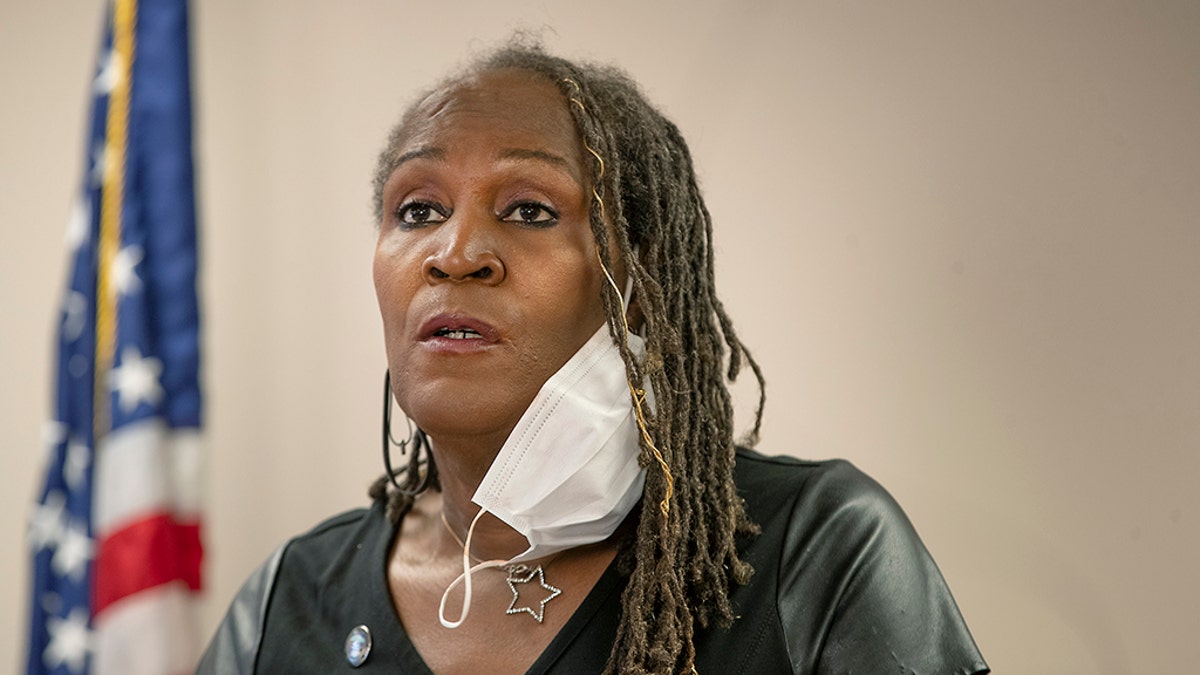
City Council Vice President Andrea Jenkins sings Amazing Grace during a news conference Thursday, May 28, 2020 in Minneapolis, Minn. Violent protests over the death of a black man in police custody rocked a Minneapolis neighborhood for a second straight night as angry crowds looted stores, set fires and left a path of damage that stretched for miles. The mayor asked the governor to activate the National Guard. (Elizabeth Flores/Star Tribune via AP)
June 8 — Thousands pay their respects to Floyd in Houston, where he grew up. He's buried the next day.
June 10 — Floyd's brother testifies before the House Judiciary Committee for police accountability.
June 16 — Trump signs an executive order to encourage better police practices and establish a database to track officers with excessive use-of-force complaints.
TRUMP SIGNING EXECUTIVE ORDER ON POLICING TO 'BUILD TRUST' IN LAW ENFORCEMENT
July 15 — Floyd’s family sues Minneapolis and the four former officers.
July 21 — The Minnesota Legislature passes a broad slate of police accountability measures that includes bans on neck restraints, chokeholds and so-called warrior-style training.
Oct. 7 — Chauvin posts $1 million bond and is released from state prison, sparking more protests.
Nov. 5 — Judge Peter Cahill rejects defense requests to move the officers' trials.
Jan. 12, 2021 — Cahill rules Chauvin will be tried alone due to courtroom capacity issues. The other officers will be tried in August.
Feb. 12 — City leaders say George Floyd Square, the intersection blocked by barricades since Floyd's death, will reopen to traffic after Chauvin's trial.
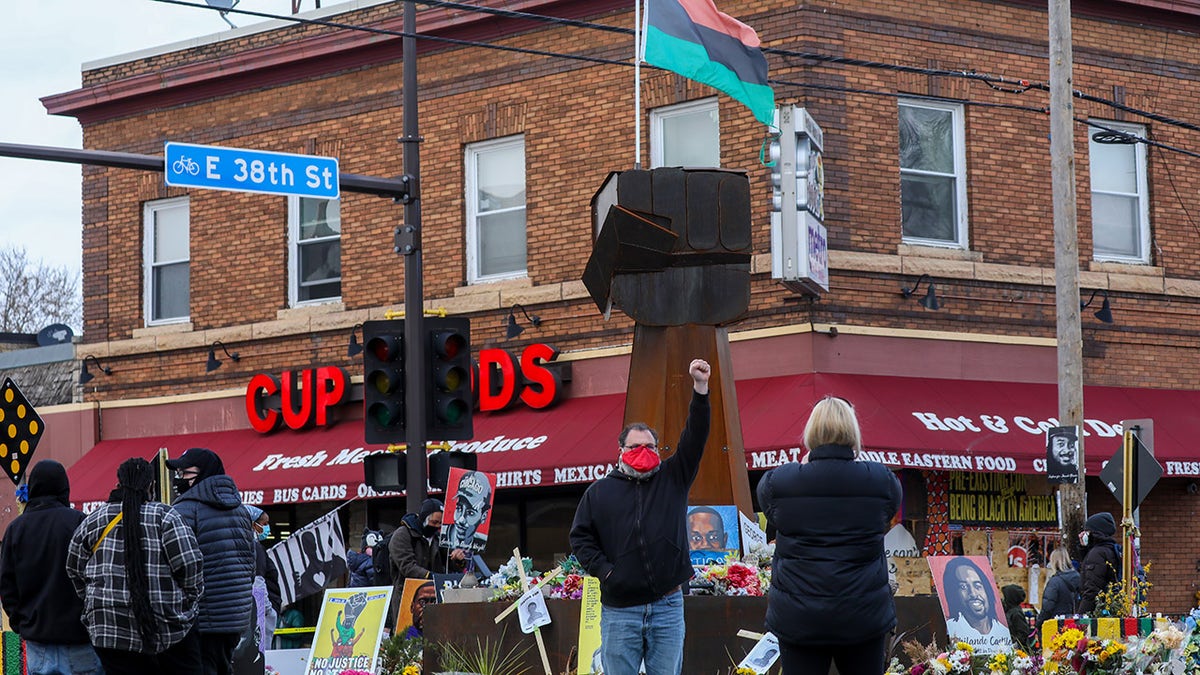
MINNEAPOLIS, MINNESOTA - APRIL 21: People lay flowers at a memorial in George Floyd Square in Minneapolis, Minnesota, United States on April 21, 2021. George Floyd by the Cup Foods where he was killed by Minneapolis Police Officer Derek Chauvin in Minneapolis, Minnesota. (Photo by Yasin Ozturk/Anadolu Agency via Getty Images) (Getty Images)
March 9 — The first potential jurors are questioned for Chauvin's trial after a day's delay for pretrial motions.
March 12 — Minneapolis agrees to pay $27 million settlement to Floyd family.
March 19 — Judge declines to delay or move the trial over concerns that the settlement could taint the jury pool.
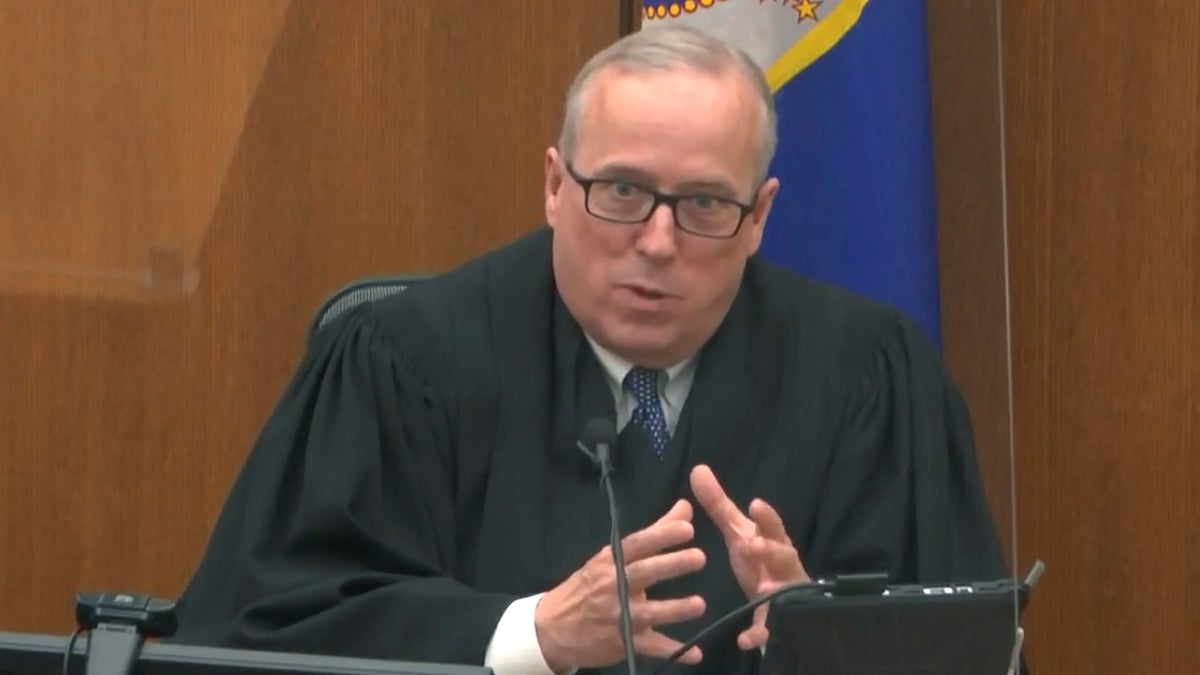
In this image from video, Hennepin County Judge Peter Cahill discusses motions before the court Monday, April 12, 2021, in the trial of former Minneapolis police Officer Derek Chauvin at the Hennepin County Courthouse in Minneapolis. Chauvin is charged in the May 25, 2020 death of George Floyd. (Court TV via AP, Pool)
March 23 — Jury selection completed with 12 jurors and three alternates.
March 29 — Opening statements are given.
April 11 — Daunte Wright, a 20-year-old Black man, is fatally shot by a white police officer during a traffic stop in suburban Brooklyn Center, sparking successive days of protest.
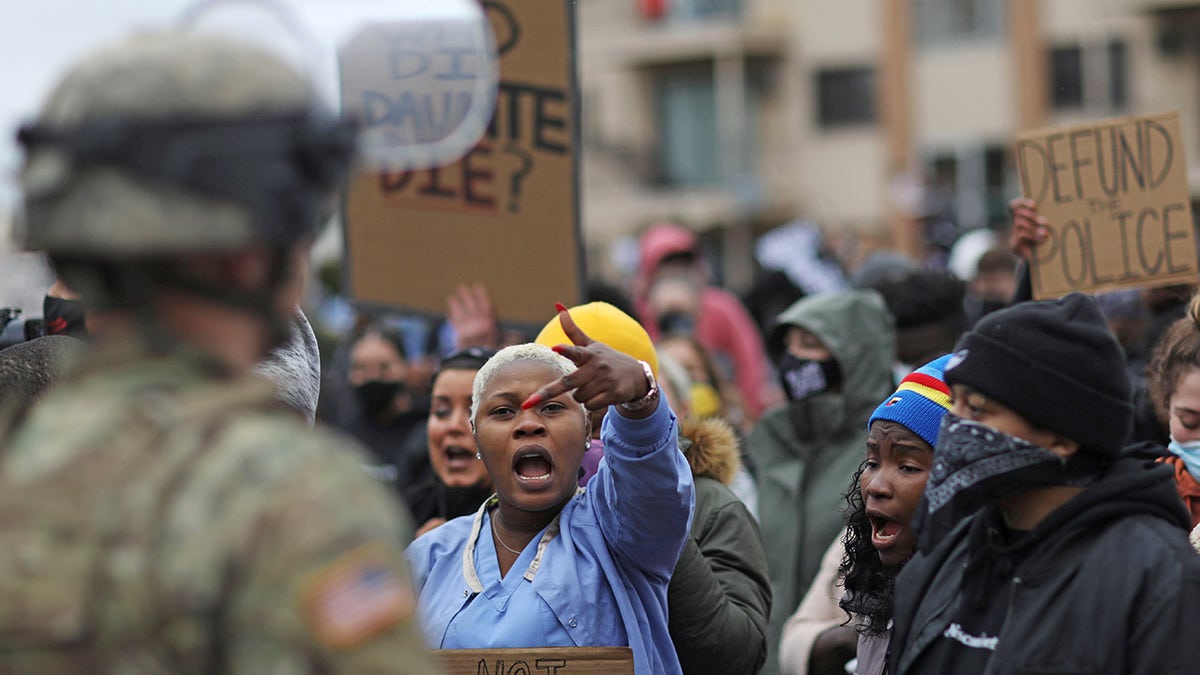
Protesters rally outside Brooklyn Center Police Department a day after Daunte Wright was shot and killed by a police officer, in Brooklyn Center, Minnesota, April 12, 2021. (REUTERS/Leah Millis)
April 12 — Judge declines request to sequester Chauvin jury immediately due to Wright shooting.
April 15 — Testimony ends.
April 19 — Closing arguments. Jury begins deliberations.
JURORS WEIGH CHAUVIN'S FATE, STAYING OUT OF SIGHT BUT CENTER STAGE
April 20 — Jury convicts Chauvin on murder and manslaughter charges.
May 7 — Federal grand jury indicts Chauvin, Lane, Kueng and Thao on civil rights charges in Floyd's death.
May 25 — A street festival, musical performances and moments of silence are held in Minneapolis and elsewhere to mark the one-year anniversary of Floyd's death, and Floyd family members meet with President Joe Biden in Washington to talk about continuing pursuit of police reforms.
CLICK HERE TO GET THE FOX NEWS APP
June 25 — Cahill denies new trial for Chauvin ahead of his sentencing in state court.


